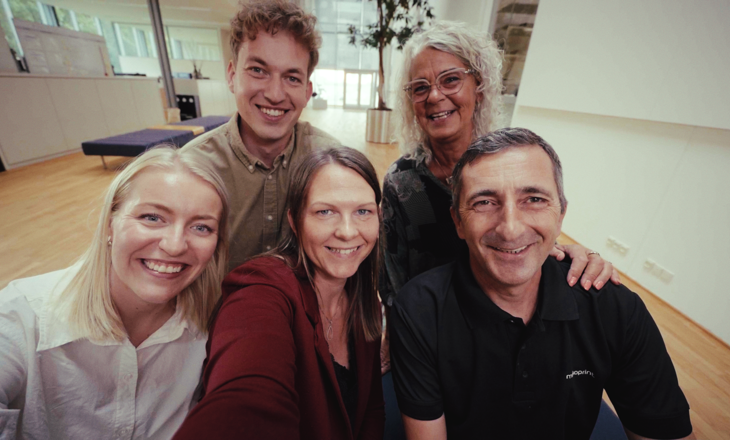
Mekoprint Hong Kong department: Yat Long, Søren, Molly, and Alexis (not pictured)
Expectations for ESG are still high – especially for suppliers supporting global industrial customers. At Mekoprint, we see ESG not just as a requirement, but as a natural part of how we do business. That’s why we participate in the project ESG in value-chains, where we – together with four other companies – aim to strengthen accountability and build competitive value chains.
A key part of that work is close collaboration with our suppliers. With over a decade of local presence in Asia, we’ve gained valuable insights into what makes ESG work in practice — even across cultures, time zones, and regulatory frameworks.

General Manager, Mekoprint Hong Kong
Søren Kold
Based on his experience leading Mekoprint’s office in Hong Kong and working closely with Danish Industry, Søren has outlined three specific recommendations for how to strengthen ESG collaboration with Asian suppliers.
1. Put ESG on the agenda - every time
ESG may not always be the first topic on the agenda, but to maintain focus and ensure progress, it should be included in every supplier meeting. This helps make the ESG conversation a natural part of the collaboration – and signals that sustainability and responsibility are integrated into everyday business. Not just something done for compliance!
Depending on how far along a company is in its ESG work, it’s important to change where ESG fits best on the agenda – sometimes as a main topic and sometimes as a check-in alongside other priorities to ensure a balanced, but continued motivation and focus.
2. Invest time in long-term partnerships
Strong ESG collaboration is built on trust – and trust takes time. Long-term supplier partnerships can be a clear strength, especially for customers who value transparency, accountability, and close collaboration.
While such relationships don’t happen overnight, companies can benefit from investing in suppliers where mutual goals, open dialogue, and shared responsibility can be developed over time.
3. Taylor expectations to the maturity of your suppliers
Suppliers are at different stages in their ESG work and experience with ESG related requirements, which calls for a flexible approach. It’s important to know what can realistically be expected today – and where there’s realistic potential to drive improvement.
Tools like maturity models, codes of conduct, and certifications can help clarify expectations around environmental impact such as emissions and waste handling - and working conditions such as overtime work issues and working conditions. The goal is alignment between what the customer needs, what the supplier can deliver, and what the business stands for.

General Manager, Mekoprint Hong Kong
Søren Kold
In a time where regulatory pressure may decrease, Mekoprint chooses to maintain momentum – because real competitiveness is built on consistency, not compliance alone. Want to see how we turn strategy into action? Explore our ESG report for more insights.





